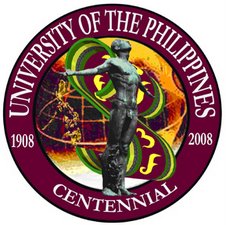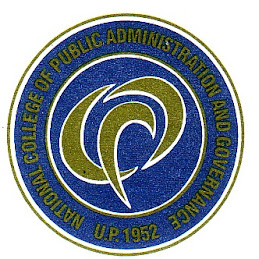Readers are invited to submit conference papers, especially on Environmental Governance, to the International Conference on "Public Administration and Governance at the Forefront of Change: Dimensions, Dynamics, Dysfunctions, and Solutions" to be held on 5-7 December 2007 in Manila, Philippines (venue to be announced). Deadline for the submission of abstract is on 31 May 2007. Submit them to the following e-mail addresses: fevmendo@yahoo.com, dean_up_ncpag@yahoo.com, abrillantes2001@yahoo.com. COPY FURNISH ME AT efloranoy@yahoo.com SO I CAN FOLLOW UP YOUR ABSTRACT SUBMISSION. Details of the conference are below.Overview
The exciting field of Public Administration is at the forefront of change and reform. Challenges as to its basic relevance as a field of study and practice have been raised at the global level, particularly in the Asia-Pacific region where a mix of development states conglomerate. Issues of good governance- transparency and accountability, rule of law, human rights and poverty alleviation, access to justice, participation and service delivery especially of the disadvantaged and marginalized- are confronted by academics and practitioners alike, jolting them out of their ivory towers (mainly the former) to work with the “outside world” and reflect and act on proposed remedies and solutions as citizens of the world.
“New” fields and concerns have been emerging dynamically – e-governance, an “inconvenient truth” on sustainable development, regulatory governance and competition, corporate social responsibility, citizen engagement, synergy between the government and non-government organizations, geo-politics, sustainable human development, and the millennium declaration. Indeed the field is at the forefront of transformation and is being challenged to reconfigure and reposition itself, as well as reexamine its roles and contributions in making the world a better place to live in.
Objective
Capitalizing on the inherent openness of academics and practitioners of the field for self-reflection, advocacy and change, an international conference will be held in Manila, Philippines on December 5-7, 2007. It will focus on the dimensions, dynamics and dysfunctions of development changes, “aberrations”, problems and confusions in Public Administration and Governance (PAG), and explore possible opportunities, remedies, strategies, solutions and best practices to address these concerns.
Specifically, it aims to:
v Discuss challenges, threats, and issues in the theory and practice of Public Administration and Governance, and how these impinge on sustainable human development, protection of human rights and poverty alleviation
v Explore innovations, breakthroughs, emerging trends, best practices and “new” solutions, remedies and strategies to address these challenges; and
v Draw lessons on the roles and contributions of Public Administration and Governance in development, change and transformation
Thematic Areas
Focus will be on the following thematic areas:
A. Issues, Challenges and Threats:
- Relevance of PAG Education
- Academic Excellence Beyond the Classroom
- Public Sector Reform
- Political Chaos and Changes
- Poverty Alleviation and Globalization
- Corruption Control and Rebuilding Trust
- Access of the Poor and Disadvantaged to Justice, Participation and Services
- Human Rights and Governance
- Environmental Degradation
- Peace and Security
- International Terrorism
- Millennium Declaration and Development Goals
- Global Rules and International Trade
- Climate Change, Global Warming and Natural Disasters
- Fiscal Management and Development Financing
- Others
- Innovations, Emerging Trends, Best Practices and Solutions
- E-governance
- Geo-informatics
- Judicial governance
- Legislative governance
- Regulatory Administration, including environmental governance
- Corporate Social Responsibility
- Global Citizenship
- Charter Change, Federalism, Local and National Government Relations
- Collaboration, Synergy and Engagement between and among Government and Non-government, including Business Sectors, both local and international
- Public-private partnership
- Human rights approach to development
- International covenants and local policy making
- Transparency and Accountability Watch
- Others
- Roles, Scenarios and Contributions of Public Administration and Governance in Development, Change and Transformations
Presentation Format
Papers will be presented in Plenary or simultaneous Panel Sessions of 2 hours each. There will be 3 paper presentations per session; 20 minutes will be allotted per paper presentation. Open forum will follow after all papers shall have been presented.
Language of Presentation
English
Call for Papers
Academicians, practitioners and others interested are invited to submit their papers dealing with any of the conference thematic areas. Authors must submit an abstract of about 750 words (not more than two pages) in English that should summarize the arguments and issues being addressed by the paper. It should situate the arguments within the broader theme of the conference. Submitted abstracts will be reviewed based on quality and relevance to the conference themes/sub-themes.
Guidelines for Submission
Abstracts must be submitted electronically as an e-mail attachment in MS Word format not later than 31 May 2007 to the Conference Organizing Committee at:
fevmendo@yahoo.com
dean_up_ ncpag@yahoo.com
abrillantes2001@yahoo.com
Letter of Acceptance
A letter of acceptance confirming refereed acceptance of your paper will be sent to you by 30 July 2007. Once the submission has been accepted, the presenter is required to send an electronic copy of the full paper by 30 October 2007.
Format
For inclusion in the CD-ROM conference kit, papers submitted on or before 30 October 2007 must conform to the following guidelines:
v Papers must include an abstract
v Paper length is up to 25 pages (including
abstract, references and figures/tables)
v A4-sized paper
v 1-inch margins all around
v 12-point Times New Roman font (except title in
16 pt)
v Text double-spaced and flushed left
v With references
Copyright belongs to the author/s and they are free to publish their papers elsewhere. However, UPNCPAG and NAPSIPAG reserve the right to upload the papers (and videotaped presentations, if any) on their websites and publish the same in their future publications.
About the Organizers
This international conference is organized by the National College of Public Administration and Governance (NCPAG), University of the Philippines (UP) and the Network of Asia Pacific Schools and Institutes of Public Administration and Governance (NAPSIPAG). Launched in 2004 in Kuala Lumpur, Malaysia with technical assistance from the Asian Development Bank, NAPSIPAG exists to strengthen the capacity, professional competence, collaboration and community of schools and institutes of Public Administration and Governance in Asia and the Pacific. It has a Steering Committee which provides direction to the network and a Secretariat located at INTAN, Malaysia.
Its Steering Committee is composed of the China National School of Administration (chair); and National Institute of Public Administration (INTAN)-Malaysia; the NCPAG, UP; the Institute of Public Enterprise (IPE), Osmania University in Hyderabad, India; and the Lee Kuan Yew School of Public Policy, the National University of Singapore, as members.
The UP NCPAG is the premier college for teaching, research and extension services in Public Administration and Governance in the Philippines. It has been the secretariat of the Eastern Regional Organization for Public Administration (EROPA), another network of schools and professionals in Public Administration. Established in 1952 as an institute to serve in nation building, UPNCPAG will be celebrating its 55th year this year.

































